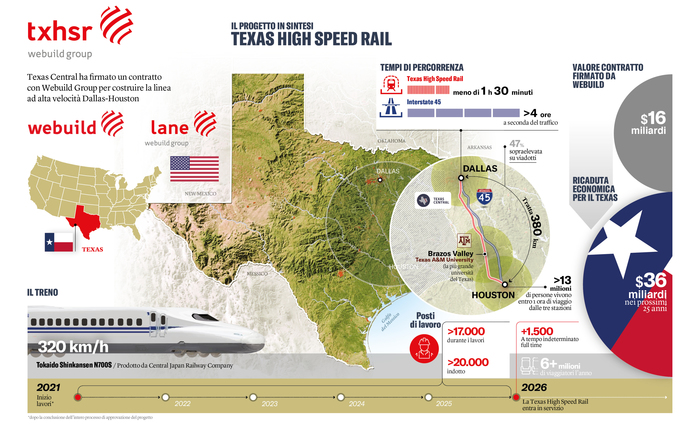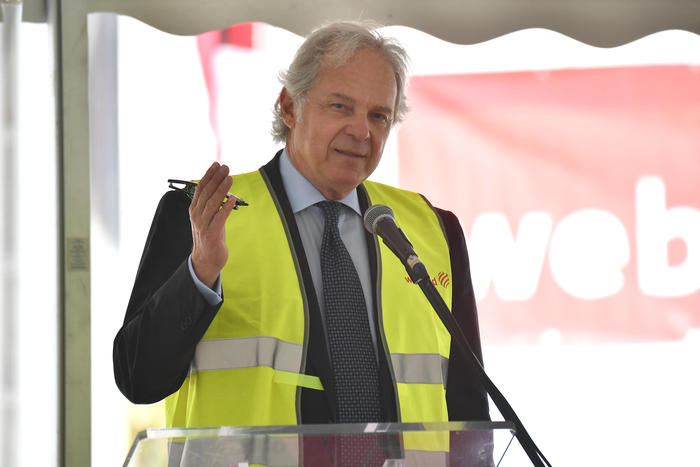(ANSA) - MILAN, JUN 15 - Webuild and its US subsidiary Lane Construction have signed an agreement with the Texas Central company to build the first high-speed railway in America, which will allow a "bullet train" on the Japanese model Shinkansen to connect Dallas and Houston by traveling at 320 kilometers per hour and covering the distance between the two Texan metropolises in just 90 minutes. This was announced by a note from the Italian company. The mega-contract, which is worth 16 billion dollars, one of the largest in the history of American infrastructures, provides for the design and construction by Webuild of all the civil installations of the railway line, with viaducts for about half of the route, docks, buildings and services for maintenance, for the train depot and for the storage of materials.
Including the three passenger stations envisaged by the project: in addition to Houston and Dallas, that of Brazos Valley, the only intermediate stop planned to satisfy especially the traffic towards A&M University, the largest Texan university.
"I am honored - commented the CEO of Webuild, PietroSalini - to lead a group of men and women who have led the group to achieve such an important result for and for the entire production chain of the sector, putting our experience at the service of this project. innovative and challenging in the United States ". (HANDLE).











/cloudfront-eu-central-1.images.arcpublishing.com/prisa/S7ERVSCT4FUVX6R7TUVBDNTH5Y.jpg)



